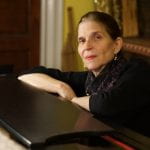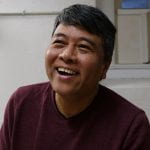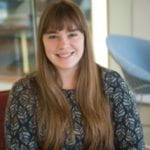Welcome to the Burmese Spirit Mediumship online course unit!
This two week online course is a collaboration between Dr. Lauren Meeker (Associate Professor of Anthropology, SUNY New Paltz, USA) and Ne Myo Aung (Director, Gitameit Music Institute, Myanmar). This course introduces students to Burmese spirit mediumship though a series of lectures, readings, films, and audio and video recordings of spirit mediumship ceremonies (nat pwe). The course will place contemporary Burmese spirit mediumship practice in the broader context of Burmese religion and culture and explore efforts to preserve traditional culture in Myanmar today. We will also coordinate two synchronous online meetings that bring together SUNY New Paltz students in America, music and culture students in Myanmar, and practicing Nat Gadaw (spirit mediums) from Myanmar.
To get started, you can find the detailed course description, syllabus and course schedule overview in the Course Description menu at the top right of the page. Course materials are organized into four Units, located in the Units dropdown menu at the top right of the page, which you will work your way through in order over the course of two weeks.
Course Schedule
Unit 1: Week of March 1, 2021
Synchronous meeting 1: TBA
Unit 2: Week of March 8, 2021
Synchronous meeting 2: TBA
Lecturer Bios
 Lauren Meeker: Dr. Meeker is Associate Professor of anthropology and Asian studies at SUNY New Paltz. Her past research focused on the cultural politics, representation, and performance of folk music and theater in Vietnam. Her current research examines relationship between social belonging and moral personhood and how that relationship is expressed and shaped through local ritual practice in rural northern Vietnam. The research focuses on two broad questions: First, how is contemporary moral personhood negotiated, embodied, and constructed in and across popular Buddhist, communal, and lineage rituals? Second, what do local ritual practices reveal about the relationship between heritage, place and identity in post-reform Vietnam? In her writing and film, she explores the embodied practices through which social relations are formed and performed in rural Vietnam.
Lauren Meeker: Dr. Meeker is Associate Professor of anthropology and Asian studies at SUNY New Paltz. Her past research focused on the cultural politics, representation, and performance of folk music and theater in Vietnam. Her current research examines relationship between social belonging and moral personhood and how that relationship is expressed and shaped through local ritual practice in rural northern Vietnam. The research focuses on two broad questions: First, how is contemporary moral personhood negotiated, embodied, and constructed in and across popular Buddhist, communal, and lineage rituals? Second, what do local ritual practices reveal about the relationship between heritage, place and identity in post-reform Vietnam? In her writing and film, she explores the embodied practices through which social relations are formed and performed in rural Vietnam.
Dr. Meeker became interested in Burmese music and culture in Fall of 2018, when she began working with Alyson Hummer and Alex Peh to document the work of the Naing Ensemble on SUNY New Paltz’s campus, led by Burmese percussionist Kyaw Kyaw Naing. Meeker and Hummer have made two films about the work of the Ensemble (which are featured in this course).
 Ne Myo Aung: Ne Myo Aung, Myanmar Sandaya player, Fulbright recipient with a MA in Ethnomusicology from the University of Washington is Dean of Gitameit Music Institute in Yangon. He is from Tamu in Sagaing Division, Myanmar. He began his piano studies with U Moe Naing, U Thet Oo and Kit Young in 2003. Ne Myo Aung has been coordinator for digitzing Burmese ’78 rpm records on a grant from the American Embassy, is the Myanmar representative for the Thai annual music festival C-ASEAN. He has arranged Burmese music for ensembles for various ensembles. Ne Myo Aung will coordinate the Gitameit side of the ACC Spirit Worship Project. He facilitated an exchange Teaching Artist Program with the University of Washington, school of music from 2016 to 2018.
Ne Myo Aung: Ne Myo Aung, Myanmar Sandaya player, Fulbright recipient with a MA in Ethnomusicology from the University of Washington is Dean of Gitameit Music Institute in Yangon. He is from Tamu in Sagaing Division, Myanmar. He began his piano studies with U Moe Naing, U Thet Oo and Kit Young in 2003. Ne Myo Aung has been coordinator for digitzing Burmese ’78 rpm records on a grant from the American Embassy, is the Myanmar representative for the Thai annual music festival C-ASEAN. He has arranged Burmese music for ensembles for various ensembles. Ne Myo Aung will coordinate the Gitameit side of the ACC Spirit Worship Project. He facilitated an exchange Teaching Artist Program with the University of Washington, school of music from 2016 to 2018.
 Kit Young: Pianist/improviser-composer Kit Young centers her musical practice on unwinding listening and performing biases among communities of musicians and audiences as they venture into deeper meanings equalizing the unfamiliar with their familiar.
Kit Young: Pianist/improviser-composer Kit Young centers her musical practice on unwinding listening and performing biases among communities of musicians and audiences as they venture into deeper meanings equalizing the unfamiliar with their familiar.
With a background in Thai music, culture and language, Ms. Young in 1987 began studying Burmese language, music and particularly the performance of Sandaya – Burmese music and techniques played on the western piano. Unable to travel to Burma because of crackdowns by the military dictatorship, Ms. Young learned her first repertoire from tape cassettes. Later she studied with Myanmar’s most celebrated pianists: Gita Lulin U Ko Ko and Sandaya U Yee Nwe and performed as an accompanist for singers Htar, Shwe Man Win Maung, U Tin Maung Win and others.
Together with Burmese colleagues and students, Ms. Young founded the Gitameit Music Institute in Yangon in 2003 when she moved to Myanmar to live for five years. Musicians at Gitameit found new skills, different ways of encountering creativity, developing personal expression and tools for job creation in an educational climate of limited opportunity.
Ms. Young’s collaborative performance partners include Thai violinist Nop Sotthibhandu (Here Records: Akhanee Keeta), Myanmar Tayaw (violin) player U Tin Yee, Dancer Shwe Man Chan Thar, Chinese Gu Qin performer Wu Na, currently, American pianist Eve Kodiak. Her larger works include an improvised opera “What Miss Dickinson Heard – And Didn’t”, a song cycle setting the poems of U San Oo “Visiting U San Oo” , two music theater works performed in Yangon in 2006 and 2010, “Nya La Ka” and “Ye Bawe: The Monsters of Inya Lake”. She taught piano at: University of Richmond, University of Maryland – Baltimore, University of Michigan, Sri Nakarin Wirot University , Payap University, and Beijing Western Academy.
 Alex Peh: Pianist Alex Peh is a performer, improviser, and associate professor of music at SUNY New Paltz who explores the intersecting realms of contemporary music, improvisation and performance. He traveled to Yangon, Myanmar on an Asian Cultural Council fellowship to study Burmese Sandaya piano style with pianist U Yee Nwe. Peh supported Burmese percussionist Kyaw Kyaw Naing, his teacher and mentor, in establishing the first Burmese ensemble in the United States at SUNY New Paltz.
Alex Peh: Pianist Alex Peh is a performer, improviser, and associate professor of music at SUNY New Paltz who explores the intersecting realms of contemporary music, improvisation and performance. He traveled to Yangon, Myanmar on an Asian Cultural Council fellowship to study Burmese Sandaya piano style with pianist U Yee Nwe. Peh supported Burmese percussionist Kyaw Kyaw Naing, his teacher and mentor, in establishing the first Burmese ensemble in the United States at SUNY New Paltz.
Peh started a trio with percussionist, Susie Ibarra and flutist, Claire Chase. Together they will release a trio album entitled Talking Gong on New Focus Records, January 2021.
Peh received his musical training at Northwestern University and Indiana University where he worked with Arnaldo Cohen, Menahem Pressler, Evelyne Brancart and Sylvia Wang. He attended the Banff, Aspen and Tanglewood music festivals. Peh is currently associate chair of the music department at SUNY New Paltz.
Alyson Hummer: Alyson Hummer is a founding member of the Naing Ensemble and SUNY New Paltz graduate. While at SUNY New Paltz, she studied classical piano with Dr. Alex Peh through which she met and studied with Kyaw Kyaw Naing. She and Dr. Lauren Meeker have produced two ethnographic films exploring the learning and teaching style of the Burmese Saing ensemble and the tradition of Nat Pwe as taught by Naing in the United States. She traveled to Myanmar with Peh and Naing to further study and document this musical tradition.
 Kyaw Kyaw Naing: “An exhilarating tease, defying expectations of symmetry or steady tempo…” New York Times.
Kyaw Kyaw Naing: “An exhilarating tease, defying expectations of symmetry or steady tempo…” New York Times.
Kyaw Kyaw Naing is a Burmese classical musician, composer, and master of the pat waing, a circle of pitched drums that is a legacy of Burmese court culture and Buddhist folk traditions.
Born in Rangoon, Kyaw Kyaw Naing served as director of the Burmese National Saing Orchestra from 1984-1994, and toured internationally, performing in major venues throughout the world. His albums include Pat Waing: The Magic Drum Circle of Burma (1998) and Bang on a Can Meets Kyaw Kyaw Naing (2011). He was honored at the Asia Society’s 2012 Awards Dinner held in New York City, November 8, 2012 and has appeared on Jon Raskin’s The Hear and Now (2015).
Naing performed with Western musicians for the first time with the Bang on a Can All-Stars. In 2001, he performed on “The Bang on a Can Marathon Music” at the Brooklyn Academy of Music in New York City. In February 2002, he appeared at the Lincoln Center’s Alice Tully Hall with the Bang on a Can All-Stars.
On December 13, 2003, Naing performed with a full Burmese orchestra that included twelve musicians and seven dancers for the first time in almost 30 years. This performance took place at the Asia Society in New York City, organized by Rachel Cooper. Naing was the featured performer at George Soro’s 75th birthday party.
He has performed internationally in Malaysia, Singapore, Taiwan, Russia and Thailand, where he was invited by the King of Thailand to perform for his daughter’s birthday. He performed in England for Burmese New Year festivities at the Burmese embassy.
Naing graduated from the National School of Fine Arts and learned to play the pat waing from his father, the legendary U Sein Chit Tee, who helped introduce traditional Burmese music to the world in concerts across Asia, Europe, and the United States.
Acknowledgments and Gratitude
We are very grateful to Kit Young for her initiative and for bringing us together to make this project happen and to the Asian Cultural Council for its generous grant in support of this project.
Our deepest thanks to Kyaw Kyaw Niang (director, Naing Ensemble at SUNY New Paltz), whose expert and patient teaching skills brought Burmese music to life at SUNY New Paltz and whose generous collaboration on two films about the Naing Ensemble at SUNY New Paltz have made this course possible.
Header Image Citation: The thirty-seven nats, a phase of spirit-worship prevailing in Burma, by Sir R. C. Temple. With full-page and other illustrations.” New York Public Library Digital Collections.
